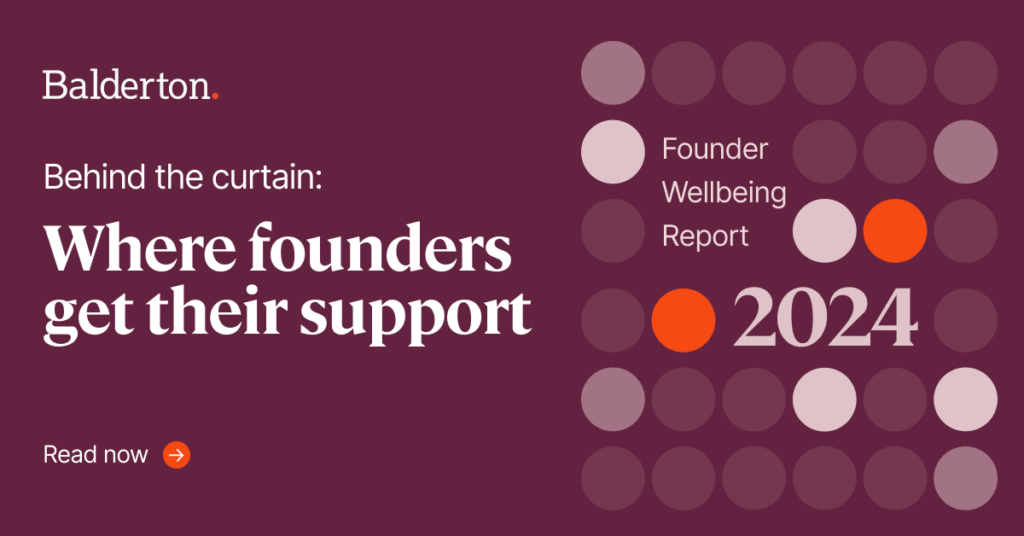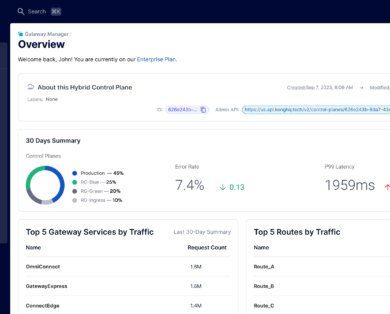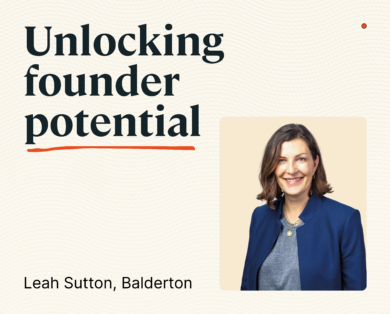- Portfolio News
- 04 March, 2025

Today, we are sharing the results of our second annual Founder Wellbeing and Performance survey and announcing the expansion of our Wellbeing Platform to include a new leadership development programme.
Since launching the Founder Wellbeing and Performance Platform last year, more than 100 founders have participated in at least one of the programmes being offered – exec coaching, health and fitness, or the CEO Forums.
I wrote about some of the impact we’ve seen in my last post, but it’s safe to say that many founders are reaping the benefits, and we’ve been proud to support other venture capital firms launching similar initiatives. We also just recently added access to Cooper Parenting, which provides parental support and guidance not just to founders but also their partners and spouses.
How we got here: Healthy founders = healthy startups
To be very transparent, we’re not just doing this to be nice. We fundamentally believe that it makes business sense because healthier founders build healthier businesses. They are able to stay actively and energetically involved in their companies over a longer period of time – which is what we think is required to ultimately achieve great success.
To recap some of our initial findings from last year:
- 88% of founders agree excessive stress can result in bad decision making
- 83% believe constant high pressure can lead to team burnout
- 64% say it can negatively impact business performance
Stress, high pressure, and long hours are an inevitable part of founding a company. But balancing these with a proactive approach to wellbeing (e.g. physical and mental health, nutrition, exercise, sleep, peer-support and coaching) can have a direct, positive impact on founder performance and business outcomes. We have seen this first-hand.
Balderton’s Founder Wellbeing and Performance platform was life changing for me, especially the WellFounded programme. It helped me figure out my ‘personal resilience manual’. Before joining the programme, I was operating at 20-25% energy, I was effectively burned out. Like many founders, I used to ‘fly, crash, fly, crash’ but WellFounded gave me the gift of personal resilience. Since completing the programme, I’ve consistently maintained a 85% energy and mood, day in day out without crashing. Worth absolute gold.
Tim Guilliams co-founder and CEO, Healx
Beyond conventional notions of wellbeing
With our second annual survey, we dug a little deeper into the root causes of founder stress, which can eventually lead to poor performance or burnout. Time management, high pressure and lack of support from investors remain key issues. But there are other factors at play as well – including personal financial strain, family and caring responsibilities, and the personal development challenges that come with scaling a company as it grows.
All of these things directly impact founders and CEOs, including their ability to make good decisions, maintain a high level of performance, think creatively, or feel comfortable taking the risks required to build a game-changing company. To highlight a few of the key takeaways from the report:
- Relationships and support: Only 33% of founders and CEOs often turn to their investors for professional support. Instead, many lean heavily on personal relationships, which are deteriorating as a result, causing further stress.
- Financial pressure: 42% say that personal financial stress sometimes distracts them from running their business, and 23% say their personal financial situation has made them less likely to take business risks.
- Leadership challenges: Nearly a quarter (23%) find it very or extremely difficult to adapt their leadership style to meet the needs of their company as it grows. Series B+ founders and CEOs are twice as likely as their early-stage counterparts to struggle maintaining company culture and finding the right external expertise and advisors to support them.
Unsurprisingly, the challenges raised are varied and complex. Many of these – such as personal financial risk, and impact on relationships with family and friends – are an inevitable part of starting a business. Founders accept that it’s part of the package, and the potential reward if things go well is worth the tradeoff.
But that doesn’t take away from the fact that these things can, and often do, negatively impact the founder or CEO’s performance, and therefore reduce the chance of long-term success for the business. If you’re struggling to pay for rent or childcare each month, and your personal relationships are being pushed to the limit, that stress is inevitably going to impact your ability to focus and make effective business decisions, especially as the years go on. We asked ourselves what, as investors, can we do to help relieve some of this pressure – giving the founders we work with greater control over their own performance, removing some of the unnecessary stresses and pressures, and increasing their ability to deliver on the big vision they have for their company.
Identifying appropriate support opportunities as investors
It is not the role of a VC to mitigate all financial or personal risk for startup founders. But there are ways that we can help. For example, by proactively raising conversations about financial pressure and looking to address this through compensation, liquidity at the right time, or other financial benefits. We can also provide access to third-party resources and peer support – such as through Balderton’s Cooper Parenting partnership, executive coaching offering and CEO forums.
There is also a very clear opportunity for more structured support on helping founders develop their leadership skills and approach as their companies scale. That’s why, based on insights from our research, as well as over two decades of experience working with founders and CEOs, we have launched a new six-month, bespoke leadership development programme for our portfolio with partner Better Faster Further. Our first cohort kicks off next week, and we’re looking forward to learning more along the way.
Above all else, as investors we need to speak up. To proactively raise the conversation with founders, ask how they are doing, how we can help, and encourage them to seek support where necessary. There is still so much stigma around founder wellbeing, but its impact on performance and business outcomes is clearly proven. So – in the interest of healthy founders, healthy businesses and a healthy ecosystem – let’s change the conversation.
 Daniel Waterhouse
Daniel Waterhouse 













